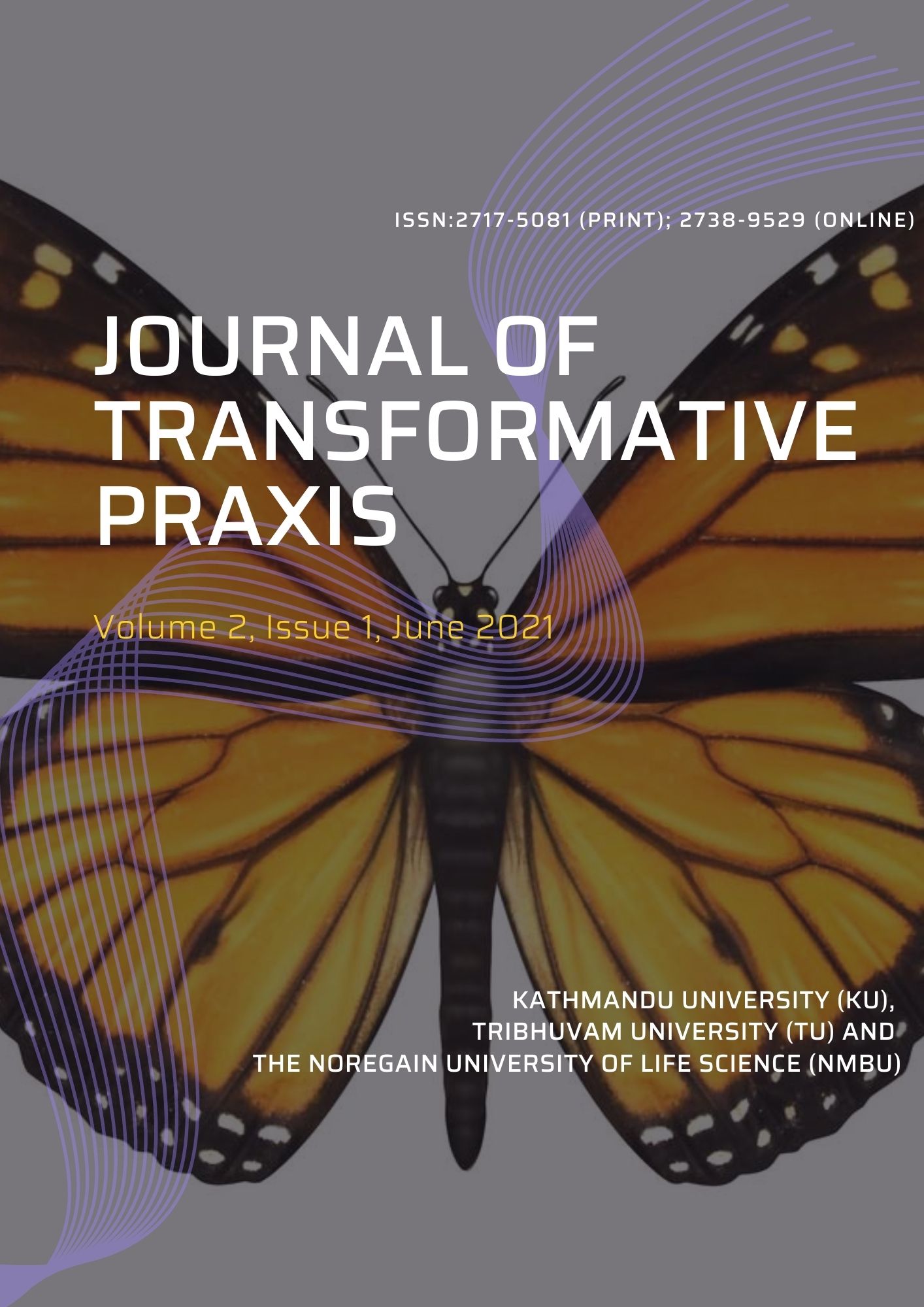Mangsuk as Indigenous Knowledge Heritage in Yamphu Community: An Estranged Transformative Learning Space
Keywords:
Mangsuk. Mundhum. Transformative Learning. Cultural self-Knowing. Relational Knowing. Beliefs and Worldviews.Abstract
Based on a critical ethnographic research tradition, this paper explores how Mangsuk as an indigenous institution represents a space for cultural-self and relational knowing in the Yamphu indigenous community of Ambote village of Ilam district of eastern Nepal. The paper explores the beliefs, worldviews, and practices of Mangsuk that pass on to adults and children in the community. The paper argues that Mangsuk, as a cultural institution, shapes the emotions, sense of self, particular beliefs, and behaviors among the community people. It further highlights the Mundhum (an oral tradition) associated with the Mangsuk ritual to transfer Yamphu indigenous knowledge, communal values, beliefs, emotionality, spirituality, and worldviews among the kins in the community. Furthermore, the paper portrays how modern education has been side-lining the indigenous ways of transformative learning (cultural self-knowing and relational knowing), resulting in the relegation of indigenous knowledge heritage.
Downloads
Downloads
Published
How to Cite
Issue
Section
License
Copyright (c) 2021 Indra Mani Rai, Prabin Rai

This work is licensed under a Creative Commons Attribution-NonCommercial-ShareAlike 4.0 International License.
This license enables reusers to distribute, remix, adapt, and build upon the material in any medium or format for noncommercial purposes only, and only so long as attribution is given to the creator. If you remix, adapt, or build upon the material, you must license the modified material under identical terms.




